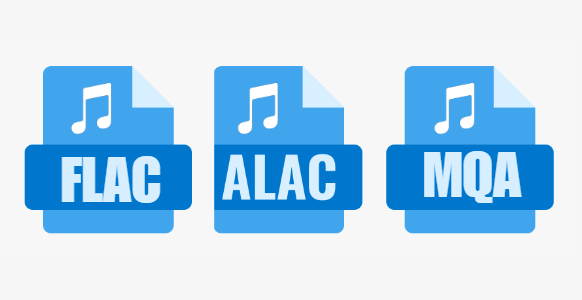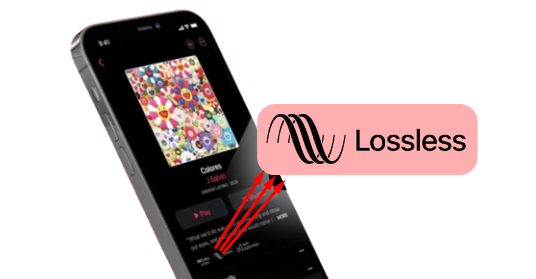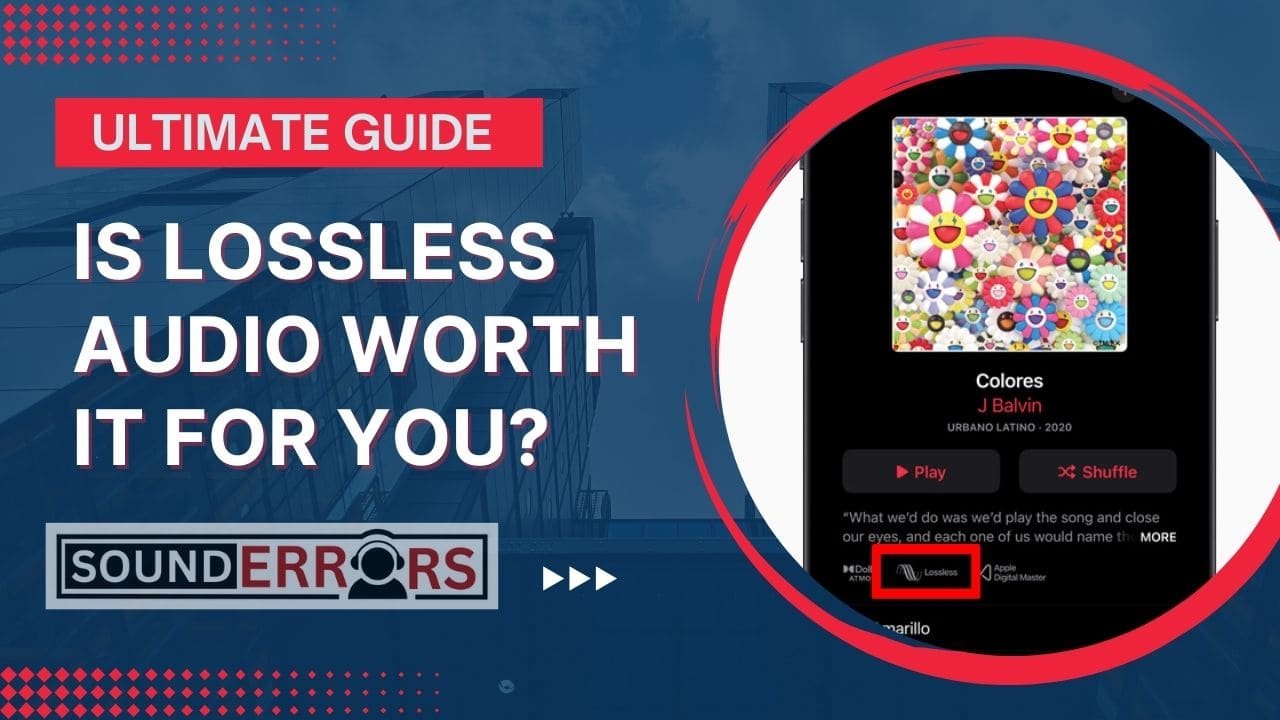This Post may contain affiliate links, when you purchase through links on our site, we may earn an affiliate commission at no extra cost to you. Here’s how it works.
Lossless audio is worth it if you value the best possible sound quality and have high-quality audio equipment such as supported headsets and home theatre to experience it. For casual listeners with standard setups, the benefits may not be enough to justify this audio quality.
Table of Contents
ToggleWhile lossless is known for its audio quality, is lossless audio worth it for you? As a casual listener, the larger file sizes of lossless audio and its storage requirements may be a headache for you.
On average, a three-minute lossless (FLAC) song encoded at a standard CD quality of 16-bit/44.1 kHz might occupy around 15-25 megabytes (MB) of storage.
What is Lossless Audio?
Lossless audio is one of the best music formats available to experience. It immerses you in your favorite live concert and makes you feel as though you’re right there at the moment. This is made possible by compressing music without sacrificing any of its original sound data.
On the other hand, there are lossless formats such as FLAC, ALAC, and MQA that prioritize preserving the integrity of the audio. These formats allow you to experience music in its intended form, capturing the essence thought by the artists.

Is lossless audio noticeable?
Yes, lossless audio is noticeable for those with high-quality equipment and a good listening environment. Lossless audio offers superior sound quality by maintaining every detail of the original recording.
Before using it with expensive gear and subscriptions, try some high-quality free music online. If you can easily tell the difference, then lossless is for you.

However, for casual listeners with standard equipment, the difference may not be noticeable. The quality difference between lossless and compressed formats may not be perceptible with non-compatible devices.
Do you really need lossless audio?
Lossless audio quality is actually better than the music you are already listening to. But before we tell you why, understand that bitrate is the primary metric for determining audio quality.
The MP3 format can range from around 96 to 320Kbps, and the best streaming services like Spotify range from around 96 to 160Kbps. Where best-suited lossless audio format bitrates are 1,411 kbps and above.
If you have a high-end headset or a proper 5.1 or 7.1 sound setup, trying lossless audio can immerse you.
The reason why Lossless Audio is worth it
Lossless audio has a few advantages and disadvantages of using it. Here are a few reasons why lossless audio is worth it:
1. Superior Sound Quality:
The primary reason you should use lossless audio is its superior sound quality. Because lossless formats contain all original audio data, they provide a more detailed listening experience. With standard quality headsets and sound systems, it will immerse you with its audio quality.
2. Preservation of Original Recordings:
Lossless formats are ideal for preserving original recordings. It’s important for high-resolution audio files, where the detail and clarity of the recording are critical. Artists pour their heart and soul into their performances and lossless audio guarantees that every nuance and emotion is faithfully preserved.
3. Better for High-Resolution Audio
If you have a high-resolution audio system or plan to invest, lossless formats are essential. High-resolution audio files, such as those in 24-bit/192kHz formats. Best-suited lossless audio format bitrates are 1,411 kbps and above, it contains every individual instrument sound.
4. Audiophiles Rejoice:
Lossless audio is a true delight for those who appreciate intricate details, nuanced layers, crystal-clear high notes, and deep bass. As a casual listener, you may not identify the difference but an audiophile can.
5. Live Experience:
Lossless audio is known for its sound quality, with the higher sound quality it feels like you’re in a live concert. If you’re a gamer, it can feel like in a live-action.
The Disadvantages of using Lossless Audio
Lossless has many considerable things to make it worthy. While it’s worth it, it has a few disadvantages for some categories of users. Here we talking about listeners who don’t have compatible devices and streaming sources.
1. Larger File Sizes:
One of the biggest drawbacks of lossless audio is the larger file sizes compared to other regular formats. A typical FLAC file is significantly larger than an MP3 file of the same song. On average, a three-minute lossless (FLAC) song encoded at a standard CD quality of 16-bit/44.1 kHz might occupy around 15-25 megabytes (MB) of storage.
As a result, streaming lossless audio can consume more data with a strong internet connection.
2. Subscription required:
You may not access lossless quality audio on the streaming platform without having a premium subscription. For streaming services, offering lossless audio might require more expensive plans. Also, you have to increase your daily data consumption, meanwhile, you ned to pay more to your internet provider.
3. Compatible device:
For casual listeners using below-standard headphones and speakers, the differences between lossless and lossy audio might be less noticeable. Investing in multiple sections like headsets, home theatre or subscriptions may not justify only experiencing lossless audio quality.
Should you spend extra money to get lossless audio?
It’s generally not worth it to pay or spend extra money for higher tiers of streaming services to access lossless audio. The majority of listeners are entirely unable to differentiate between a lossless audio file and a compressed file encoded at a decently high bitrate.
Additionally, lossless audio does not support Bluetooth, which means it’s heartbreaking for all wireless device holders.
But if you find lossless files and play them on a setup (high-end headset or surround/Dolby system) you can actually take advantage of them. If you want to experience more details within the music, you should pay extra money for it. Without such equipment, the advantages of lossless formats might not be perceptible.
Final Word:
As I told you before in this article, Lossless audio is worth it if you value the best possible sound quality. Also, having audio equipment such as compatible headsets and home theatre to experience it can make it more worthwhile. For casual listeners with standard sound setups, the benefits may not be enough to justify spending money on it.
